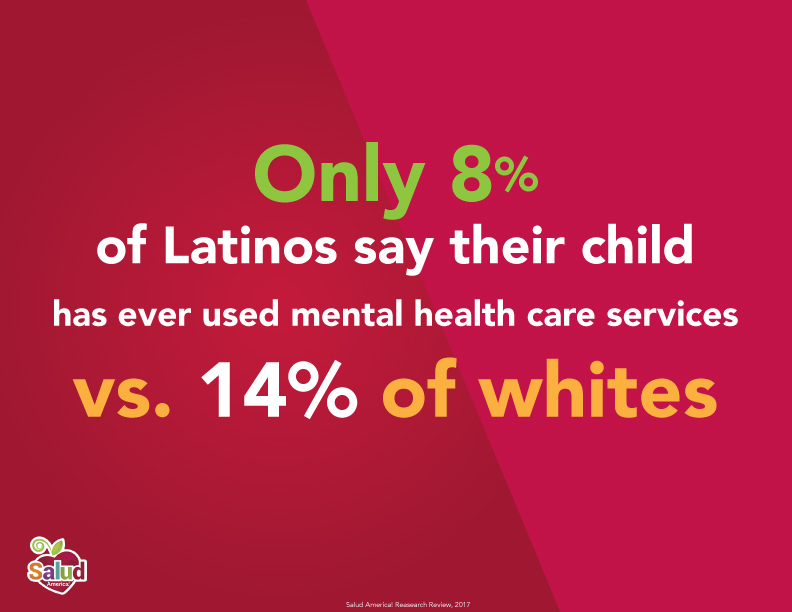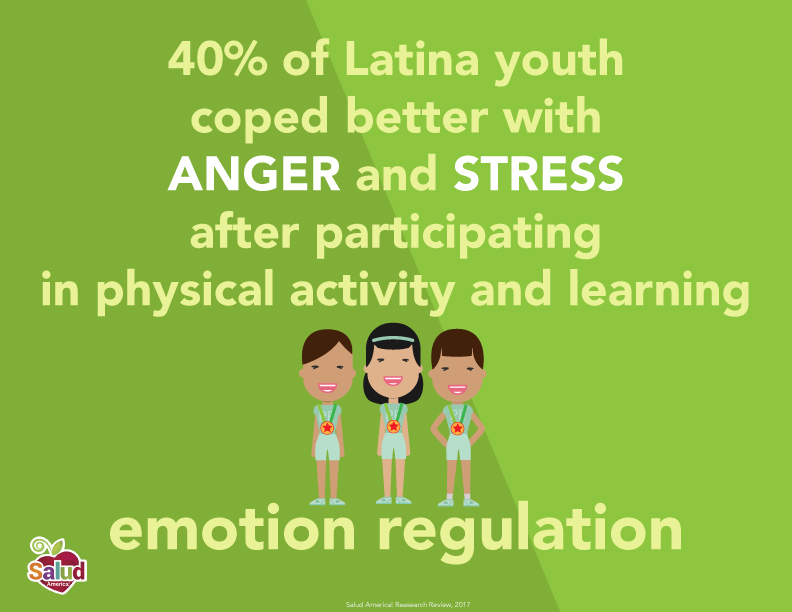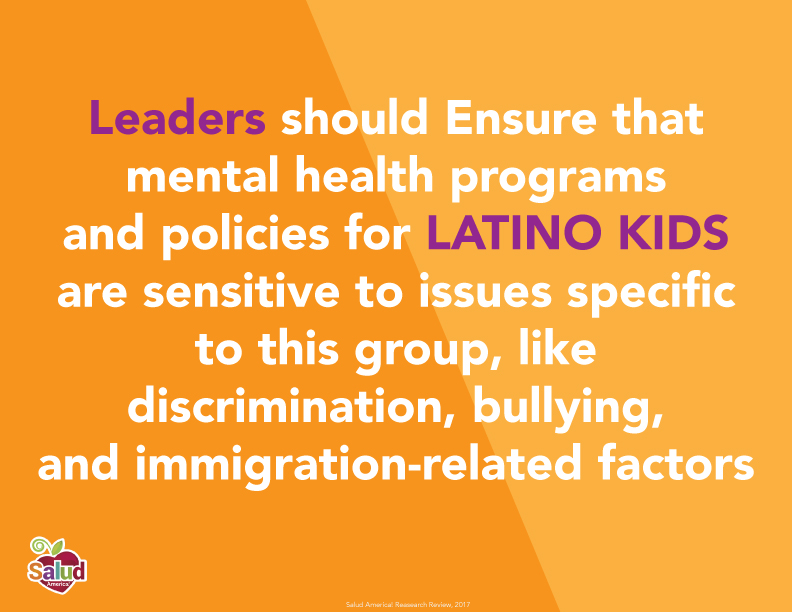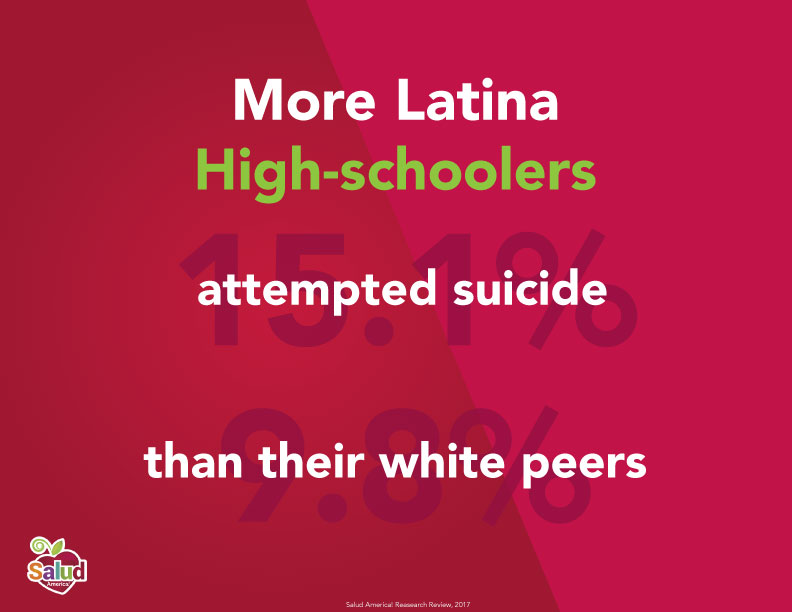Share On Social!
Abstract
Latino youth are far more likely than their peers to have mental health issues. These often go unaddressed and untreated.
Immigration, poverty, bullying, and other family and social factors can stress Latino youth.
But there’s good news, too.
Programs are emerging to reduce family, school, and community stress. These can positively impact mental health among this population.
Promising policies, while few, also are emerging.
Read the News Release (PDF)
Read the Issue Brief (PDF)
Explore success stories and find tools to take action!
Contents
Introduction & Methods. This Salud America! research review assesses available research about mental health and access to care among Latino youth. This review also examines programs and policies to tackle these issues in this population.
Key Research Findings
Latino childhood mental health. 22% of Latino youth have depressive symptoms. That is higher than any group besides Native American youth.
 Latino childhood access to mental health services. Fewer Latino parents reported that their child had ever used mental health care services (8%) compared to white children (14%).
Latino childhood access to mental health services. Fewer Latino parents reported that their child had ever used mental health care services (8%) compared to white children (14%).
The migration experience. Latino families face tough finances and difficult travel before and during migration to the United States. Many Latino children are separated from parents. After migrating, they face language issues and discrimination.
Family issues. Parent-child roles affect Latino children’s levels of stress and depression.
Community and school issues. Discrimination, poverty, violence, and bullying affect Latino children’s depression and stress levels.
 Programs with promise. Latino youth have less stress and more classroom success in interventions that mix regular exercise, sports participation, and mental health education. Community-based, cultural interventions have shown promise in improving access to mental health care.
Programs with promise. Latino youth have less stress and more classroom success in interventions that mix regular exercise, sports participation, and mental health education. Community-based, cultural interventions have shown promise in improving access to mental health care.
Policies with promise. Policy is lacking on the mental health of Latino children. But new recommendations and models have shown early promise.
Conclusions
 Policy Implications. Program leaders, school leaders, and healthcare providers should ensure that mental health care for Latino children is sensitive to issues among this group. These issues include bullying, discrimination, and other immigration-related factors.
Policy Implications. Program leaders, school leaders, and healthcare providers should ensure that mental health care for Latino children is sensitive to issues among this group. These issues include bullying, discrimination, and other immigration-related factors.
Future Research Needs. Latino youth suffer disproportionately from mental health issues compared to their peers. But there is a lack of research on strategies to diagnose and treat mental health problems in this population.
References
See the Full Research Review with references (PDF)
About the Authors
- Amelie G. Ramirez, Dr.P.H., Director, Salud America!, Professor, Institute for Health Promotion Research, UT Health San Antonio
- Kipling J. Gallion, M.A., Deputy Director, Salud America!, Assistant Professor, Institute for Health Promotion Research, UT Health San Antonio
- Rosalie Aguilar, M.S., Salud America!, Project Coordinator, Institute for Health Promotion Research, UT Health San Antonio
- Erin Surette Dembeck, P.A. (ASCP)
This report is copyright 2017 RWJF, Route 1 and College Road, P.O. Box 2316, Princeton, NJ, 08543-2316, www.rwjf.org.
By The Numbers
142
Percent
Expected rise in Latino cancer cases in coming years




